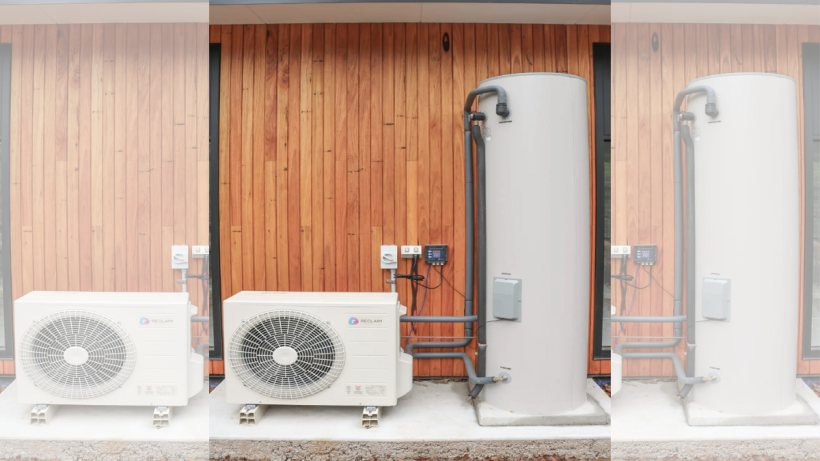Photo by Nuvo Plumbing
The average homeowner doesn’t give their hot water system much thought until they’re met with a stream of cold water when they step into the shower. Whether your home has a gas, electric, solar, or heat pump water system, it’s essential to know the signs that indicate a potential problem.
Fortunately, the plumber Glen Waverley locals use for their plumbing issues can easily repair or replace any hot water system. It’s essential to point out that repairs are generally less costly than complete replacements, making regular inspections and maintenance an important aspect of water system care.
Look Out for the Tell-Tale Signs
The thought of replacing your water heater may not be something you want to consider because every homeowner knows this can be quite costly. Luckily, not every water heater issue means that the unit needs replacing.
In most instances, your hot water system will show a series of signs to indicate a potential problem. If these issues are addressed timely manner, there’s a very high probability that your plumber will be able to save you the cost of a replacement. We’ve compiled a list of the more common signs to be aware of.
1. Fluctuating Water Temperatures
Typically, fluctuating or unstable water temperatures are the first sign of water heater issues. No matter what type of water heater you have, the temperature should always be consistent and take the same time to heat up each time.
If you find the water veering between extreme hot or cold temperatures, or it’s taking longer than usual to heat up, it could be a clear sign of an underlying problem. In some cases, the issue could be related to the heating element or thermostat. The good news is that both of these components can be replaced at a fraction of the price of a new unit.
2. Water Looks Rusty
When there are specs of rust or slightly brown water coming from your hot water taps, it may be another indicator that there’s a problem with your water heater. The appearance of rusty coloured water can often be attributed to old, rusty components that may be causing flecks of rust to fall into your water tank.
These rust specs are often also accompanied by a metallic smell. In this instance, it’s a good idea to call your plumber for an assessment of your entire hot water system. Replacing a few old components may be all it takes to get your water heater functioning properly again.
3. Your Hot Water System is Old
Despite routine maintenance, older hot water systems will eventually need to be replaced. This usually happens after eight to fifteen years of installation. Factors that can affect the longevity of your water heater include an increase in demand (such as more appliances being added, or an increase in your family), as well as the quality of the water in your area.
Systems that haven’t been maintained or had minor components replaced can also reduce the hot water system’s overall longevity. If you’ve had the same hot water system in your home since you moved in, it may be wise to have the unit assessed by your plumber.
This also provides you with an opportunity to upgrade to a bigger unit for your family’s actual demands. Keep in mind that modern hot water systems are designed to be more energy efficient, making an upgrade a worthy investment.
4. Strange Noises Coming From Your Water Heater
Faulty water heaters have also been known to make strange noises when their components are faulty. These types of sounds can include the following:
- Rattling
- Clunking
- Banging
- Hissing
Don’t wait for other signs or for the noises to become worse. Call your plumber when you hear unusual noises that don’t seem to clear up after a few minutes.
5. You Notice Leaks and Drips Coming From the Water Heater
While this is often the most noticeable sign, it’s also the worst. This is because a dripping hot water system, or signs of water around the unit are usually a sign of total system failure. In some instances, this can lead to the system bursting and causing significant water damage.
When this happens, there is also the added risk of electric shock if the water can reach cables or wiring. If you see your water tank leaking, dry the area to avoid damage to walls and flooring and switch off the system and the main water supply. You will need to contact your emergency plumber as soon as possible. Your plumber will assess the situation and advise you of the best course of action.
Final Thoughts
Ensuring that your home always has hot water when you need it is as simple as keeping an eye on your hot water system. Knowing what signs to look for will help you get the maintenance and repairs your system needs before faulty components force you to pay for a costly repair.
Speak to your local plumber as soon as you suspect your hot water system may be showing the signs we’ve highlighted. A quick assessment may save you in the long run!
Laila Azzahra is a professional writer and blogger that loves to write about technology, business, entertainment, science, and health.
